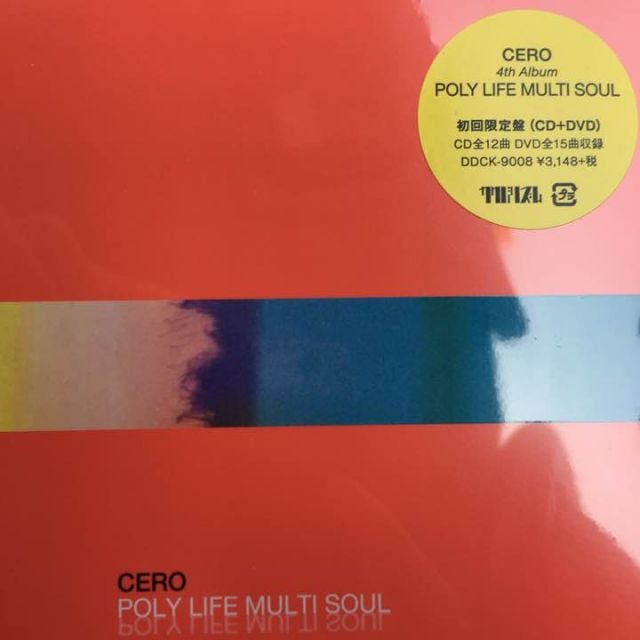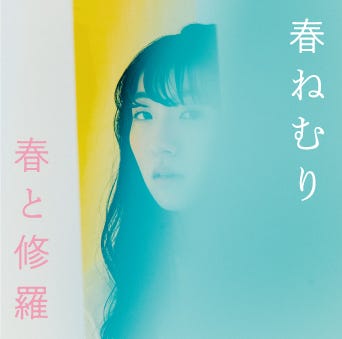Make Believe Mailer Vol. 37: Two Japanese Rock Extremes
The World Cup has been on long enough by now where every major channel in Japan has had a chance to show a game. And each station boasts its own theme song for soccer coverage. This year's batch of halftime anthems have come courtesy of bands like Suchmos and Radwimps, and it's a good reminder of just how central rock music is in Japan. Whereas the narrative in many places -- accurate or otherwise -- is that rock lacks any place on the zeitgeist, it remains the dominant genre of Japan. You don't make it your soundtrack to the world's biggest sporting event if it won't work.
Part of the appeal lies in safety -- more than other genres in Japan, rock is the one you can count on most to deliver a middle-of-the-road sound bound to please. Which is to say, a lot of Japanese rock plays it safe, whether it be the veteran chug of Mr. Children to the edge-by-way-of-Johnny's rawk of One OK Rock. For the most part, this sells, so it's tough to blame any label for embracing the Blue Encounts of the world when it works. But man, can it get boring.
Over the last quarter of 2018, though, two rock-leaning albums came out that offer different perspectives on what the style can mean when pushed. They don't connect with one another -- they rest on separate creative poles, really -- but carry the same spirit of wanting to push Japanese rock somewhere else, and are some of the year's finest.

Trio cero easily could have made a play for Japanese rock longevity. The group has been around since the mid-2000s, but experienced breakout success with 2015's Obscure Ride, particularly the laid-back "Summer Soul." That one propelled them up enough to perform on SMAP X SMAP, which probably makes them the first band to ever open for Atlas Sound to also jam out with a Johnny's boy band. They set the current wave of "new City Pop" in motion with their surprise success, and easily could have drifted along making music apt for a barbecue.
Poly Life Multi Soul, their fourth album, isn't that. It's something far more complex, loaded up with musical techniques that would make a university professor drool, but deployed in a way specifically to get people dancing. It's the most prominent Japanese release to specifically spotlight polyrhythms since a certain Perfume single. Songs include an imagined theme park ride conveyed behind swaggering funk and after-dark spoken word. The title track, closing out the whole album, is the closest Japanese rock has come to an "Impossible Soul," even if it's 1/3rd the length.
It really clicks live, however...and it has been on my mind a lot after seeing a recent performance by cero in Tokyo. Poly Life Multi Soul is what happens when a band gets intricate and attention-focused -- no syllable, bongo note or horn section is wasted (it's a strong argument in favor of finding mainstream audiences, because there's no doubt the band's "Summer Soul" success gave them the resources to create this). Complexity can be off putting when done for its own purpose, but cero use it as a way to create dance music loaded up with moving parts that feels effortless. It's their masterpiece, and a rebuke to bands opting for easy-breezy vibes. It's an argument for intricacy, something lacking in most Japanese mainstream rock, and one that does so without sacrificing rhythm.

Harunemuri's music opts for emotional intensity with no filter. Her Haru To Syura album places her against electric guitar thrashes, fragile piano and loops of her own vocals. Musically, it's a strong listen on its own, presenting a post-internet sound that happily pinballs around genres. But whereas cero dwells on the nuts and bolts of sound, Harunemuri uses it as a backdrop for release.
A simplified...but accurate enough...summary of Harunemuri is the sing-rap cadence of Suiyoubi No Campanella colliding with the vocal hellfire (and Koenji-born sonics) of Oomori Seiko. It's the perfect middle-ground between two artists lurking on the edges of mainstream Japanese music, and it isn't hard to imagine Harunemuri creeping up the ranks in the next couple of years based on how she bridges those two sides. But Haru To Syura marks her first breakthrough, an impassioned rock set flexing a lot of musical variety (the punky rumble of opener "Make More Noise Of You" quickly turning into the woozy "Narashite" giving way to the Garageband beats of "Underground" -- that's just the first three songs!) highlighted by her voice.
Japanese rock music often feels too groomed, fronted by vocalists with a little extra polish to make sure nobody goes home unhappy. When she's not rapping, Harunemuri usually lets her voice approach a scream over the course of this album. She lets it rip at various points throughout, just ripping her throat apart on the last proper song. It's unpredictable in a way Japanese artists this decade ever reach -- again, see the names mentioned above for musical links -- and one of the more gripping listens of 2018 from anywhere.
News And Views
Another week, another Johnny's talent caught up in an alleged scandal reported on by a tabloid. Can they record another scoop, or will this be a rare safe moment for Johnny & Associates? Is this guy really just studying in the United States?
Give the headline writers at Noisey credit, they know how to nail the sort of hyperbole that gets the Arama commentors fuming. "Plastic Love" is a great song, but it is tough to not roll eyes at least a little bit over Vice jumping on a bandwagon that has included The Black Madonna, Gorillaz and Know Your Meme. Though to be honest, I'm personally more annoyed by the classic "it transcends languages!" bit -- do Japanese people get Christopher Cross in their YouTube sidebar and sit slackjawed at the beauty of his voice?
Anyone who loves charts should look at Billboard Japan's midyear rankings, because it is loaded up with interesting data. Kenshi Yonezu is the most popular artist of the year so far, and I feel a big part of it is his choice to avoid streaming services (which second and third respectively TWICE and BTS lean on far more), which creates more interest.
Oricon Trail For The Week Of June 11, 2018 To June 17, 2018
I'm not sure if there is a harder idol group to place in 2018 than Morning Musume, a legacy act that feels miles away from relevancy but still sells well enough to top Oricon. Of course, a dedicated fanbase will do that for you in J-pop, and it will also result in a more general audience thinking that you are just exploiting the system. "Are You Happy?" is at least the group's best song in awhile -- that rubbery electronic line in the chorus! -- but it also feels miles away from any coherent narrative in Japanese music. Even AKB48, now in their Pink-Lady-go-abroad phase, feel more relevant to J-pop in 2018 than Morning Musume. But on the flip side -- it allows them room to try out different sounds, so that's something.
Perfume's GAME (33 1/3)
My entry in the 33 1/3 Japan series is out now! Get a copy at Bloomsbury or Amazon. Or at Kinokuniya bookstores in the US.
Look At Me!
I went on K-Pop Unmuted...my favorite K-pop-centric podcast...to talk about AKB48, Japanese idols and Produce 48 (and also...city pop by way of Yubin).
Wrote about how online media is picking up the slack on the #metoo front when it comes to music scandals for The Japan Times.
Away from music, I wrote about the proliferation of fake news in the wake of last week's earthquake in Kansai. As nationalistic as Japanese internet can get, it is worth remembering a lot of people are out there fighting against lies.
Blog highlights: Ongaku.com, Ayutthaya, Keito
Written by Patrick St. Michel (patrickstmichel@gmail.com)
Make Believe Melodies / Twitter / Facebook


